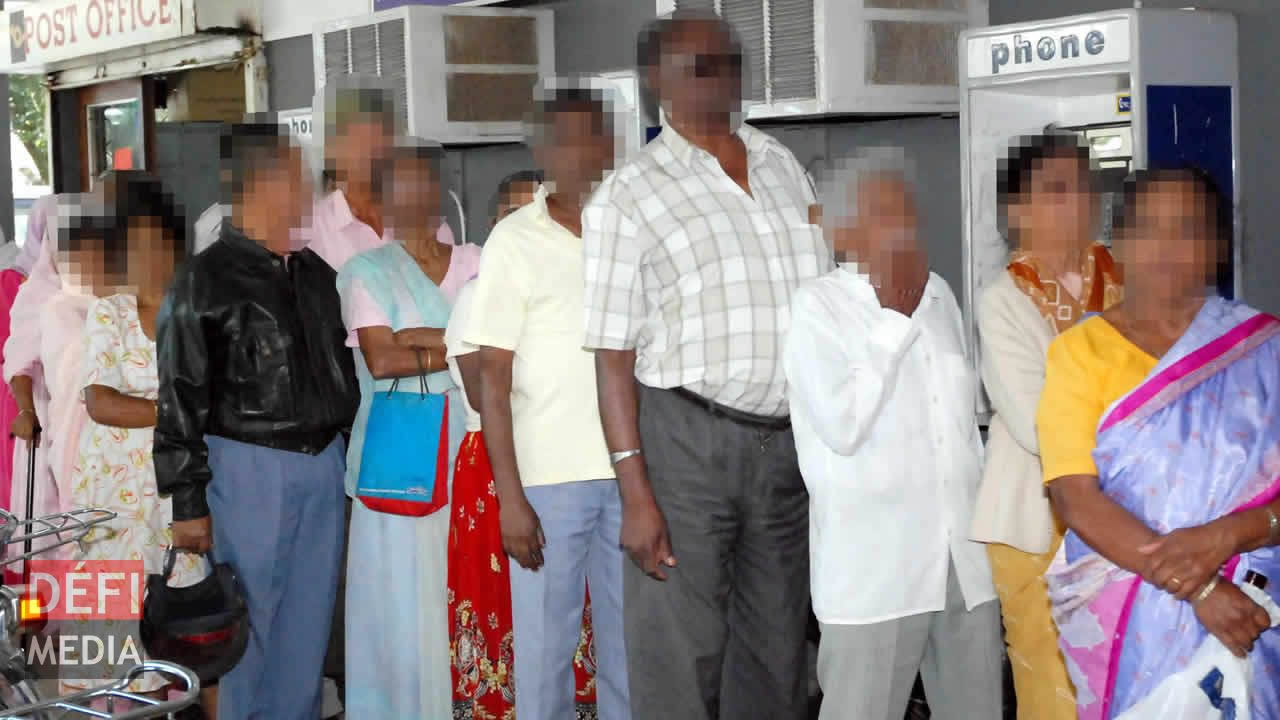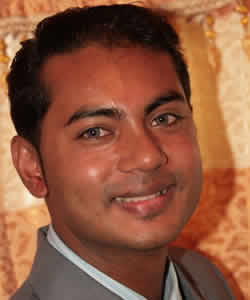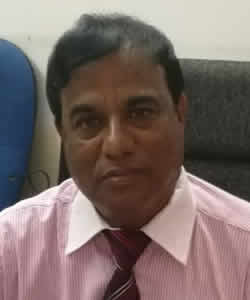
As is the case every year, pre-budget consultations have already started in view of the forthcoming 2019/2020 Budget, the last one of the present legislature, before the next general elections. This makes expectations even higher than ever. Will the economy take precedence over politics?
The annual pre-budget exercise has already started, with the Ministry of Finance inviting trade unions, NGOs, professional associations and civil society members in general to submit their ideas and proposals. As is customary, the authorities provide an opportunity for members of the public and non-governmental organisations to contribute to the preparation of the budget. Note that all interested parties have until 15 April 2019 to submit their proposals.
In a press statement, the Financial Secretary claims that the economy has become more resilient to external shocks, and absolute poverty and income inequality have been reduced. The unemployment rate is the lowest in the past ten years and inflation is low and under control. The country’s foreign currency reserves are at the highest level ever.
Significant resources have been devoted to modernise our public infrastructure, in particular the implementation of the Metro Express project. The government aspires to keep this momentum to further meet the aspirations of the population, continue to improve public service delivery and tackle new challenges while ensuring sound fiscal management by reducing the budget deficit and public sector debt.

Expectations are high, especially from pensioners who feel the government must raise the monthly old-age pension to Rs 9,000 in order to match the minimum salary threshold. Potaya Kuppan, chairman of the Southern Old People Association (SOPA) is submitting a memorandum to the Ministry of Finance, in which he justifies this pension increase.
However, this year, Amar Deerpalsing, chairman of the Federation of Small and Medium Enterprises, has decided not to participate in the official budget consultations this year. According to the entrepreneur, it is an annual waste of time. “Every year, we make proposals, the Finance Minister convenes us, listens to us, then he announces his measures, but the implementation of many of them remains lacking,” he says. And often, adds Amar Deerpalsing, some measures have the opposite effect, hence his decision not to participate in the exercise. He also believes that the Prime Minister has failed in his responsibilities by not appointing a full-time Finance Minister. “Name one democracy in the world where the Prime Minister also holds the finance portfolio,” he says. He further blames the Government for creating institutions like the EDB where “it is the private sector that is managing taxpayers’ money”.
Dr Bhavish Jugurnath, economist, states that, like all election years, this year’s budget is also likely to be a “Father Christmas” exercise. “Elections usually have an effect on the economy, and similarly, the economy usually has an effect on elections as well. In an election year, spending by government tends to be higher than usual as some unbudgeted costs go towards elections,” he says. “I believe if we look at the last budget as the Prime Minister and Minister of Finance, geared up for his last budget, it would have been surprising had he not delivered one with populist measures. Decreasing fuel and cooking gas prices, unchanged alcohol and cigarette prices and the status quo on the CWA water tariff are certainly all popular giveaways!” he recalls. He believes 2019 being the end of the mandate and the last budget, there could be more popular giveaways. He also expects an increase in the income tax allowance threshold, and a very likely increase in pension more or less equal to the minimum salary. “I also anticipate a lot of infrastructure projects, especially in strategic and sensitive electoral areas. However in economic terms, he argues that if there are too many giveaways, the first impact will be felt on the budget deficit more so if there is no increase in income. “It may be possible to have an estimated budget deficit of 3.5% of GDP. It will also be a challenge for the government to maintain public debt at 60% of GDP.”
The three key challenges

The three priorities and pressing challenges of the forthcoming Budget, according to Dr Bhavish Jugurnath, should be: Digital transformation of Mauritius through Artificial Intelligence, Mauritius Global Value Chain and IP and Moving to a High Income Economy.
Technology is rapidly changing service delivery in both the public and private sectors. Against the backdrop of Mauritius continuing digital transformation to become a Smart Nation, there is a pressing need for the country to have sustainable revenues for investing in its future, and yet remain competitive internationally. Mauritius should aim to become a ‘knowledge-based economy’ where we sell our expertise in the financial sector, energy, and where our graduates have the opportunity to design algorithms and programs that meet the demand and can solve the problems that arise. Digital economy is the future for Mauritius alongside with digitisation in agriculture and FinTech in the financial sector in Mauritius.
Secondly, the main driver for Mauritian companies in this digital age to move up the value chain is to develop knowledge-intensive, high value-added activities which lead to the creation of unique and valuable intangibles.
Thirdly, to be recognised as a High Income economy, the threshold as per the World Bank’s criteria is USD 12,475 per year, equivalent to some Rs 36,385 per month. As per a World Bank report published in 2015, Mauritius has a GDP per capita of USD 9,610 per year, which is roughly equivalent to Rs 28,000 per month. The government targeted to be a high income country by 2020 but as per macroeconomic, we cannot achieve it so soon. There is need for diversification and bringing about higher value-added activities. Innovative approaches are needed across our traditional productive sectors to increase productivity, conserve natural resources, and use inputs sustainably and efficiently. While the GDP per capita might increase slightly in the coming years, there is still growing income inequality, especially those at the bottom of the ladder that the government should tackle.
The ten priorities of Budget 2019/2020

The Ministry of Finance has listed ten priorities of the 2019/2020 Budget. They are:
- Expanding and modernising our infrastructure
- Dealing with the challenges facing the sugar and manufacturing sectors, including textiles
- Investing in new pillars of growth, in particular, AI technologies
- Encouraging a new culture of entrepreneurship
- Further opening up and integrating our economy with the rest of the world
- Investing in the education, training and other skills needed by our youth, so that they are better prepared for the future
- Addressing the impact of demographic change
- Promoting gender equality - “Think equal, build smart and innovate for change”
- Promoting a more inclusive and equitable society and further addressing the problem of poverty
- Building greater resilience to the impact of climate change.
Pierre Dinan: “Optimise our three main resources”

Economist Pierre Dinan says we must intelligently optimise our economic resources. But what are these resources? The economist speaks of three main categories: Our land, our marine area and our multicultural population. He explains that we are lucky to have a landscape embellished by a beautiful sun, a beautiful green nature and lovely sand. Secondly, we have a vast marine area of 2.3 million square kilometres. Thirdly, we have a multicultural, skilled, active and educated population and it is a great asset for our country. “It is absolutely essential that these three resources are optimally used,” says the economist.
According to him, our landscape has been rather well utilised so far but there are flaws arising. “Agriculture is not working. There are problems with sugar cane. Have we done extensive studies to see how sugarcane can boost renewable energy to free us from fossil fuels? And our food products, beyond feeding the population, can also be exported.” Pierre Dinan also regrets that our towns are no longer attractive. He argues that if the towns are not beautiful, they will not attract tourists. “Our tourism offer is too centered on the coast. We never thought of encouraging tourists to visit our towns. Even our museums do not attract them,” says the economist who finds that our tourism product is not diversified enough, while the Maldives or Seychelles have successfully done so.
Regarding our marine space, Pierre Dinan wonders where we are with strategic development, something which is also queried by the recent national audit report. “We may not have enough knowledge of the ocean economy, so we must seek foreign expertise. Seychelles, which shares 0.5 million km2 with us, has launched an international funding request to help with research.” Pierre Dinan says he expects clear and precise measures in the budget for Ocean Economy.
He further recalls how the population in the ‘80s and ‘90s showed its resilience. “But can we do the same today, when we see that we are being forced to bring in foreign workers?” He believes that our educational system is too academic whereas we should rather produce more technicians in all fields. “The polytechnics are a good start, and the budget must go in this direction, especially the recognition and valuing of trades.”
Finally, the economist warns against a populist electoral budget. “The Government should be careful not to deliver a ‘scorched earth’ budget,” he concludes.
Rajdeo Kissoonah: “An appeal to the PM to end discrimination among farmers”

Rajdeo Kissoonah, spokesperson of the Mauritius Agricultural Marketing Cooperative Federation, says he has three main priorities with regards to budget consultations this year. He wants biofarming and sheltered farming to be given more consideration so that farmers can drastically reduce the use of chemical fertilisers that are harming both our health and the environment. “I would like to see more incentives to boost the biofarming sector,” says Rajdeo Kissoonah.
He compares Mauritius with Reunion island and concludes that we are lagging far behind as Reunion island has largely expanded its sheltered farming network. “The grant for sheltered farming is not sufficient, he adds. Secondly, he feels that there is a discriminatory policy with regards to eligibility for low-cost loans by SMEs and cooperative societies. “In 2015, the government introduced new SME schemes offering low-interest loans and up to two years moratorium but only SMEs and cooperative societies created after June 2015 are eligible. This is discriminatory and highly penalises SMEs and cooperative societies existing before 2015,” regrets Rajdeo Kissoonah.
He is launching an appeal to the Prime Minister to end this discriminatory practice. Thirdly, he strongly believes that the Government should negotiate with the sugar industry to obtain agricultural land for allocation to small farmers so that we can boost crop and vegetable production. “In the past, the Government obtained 2,000 acres from the Mauritius Sugar Producers Association, and such a deal should be repeated if the Government really wants to improve the agricultural sector and farmers’ welfare.”
Reaz Chuttoo: “The State will have the capacity to pay a higher pension”

Reaz Chuttoo
Trade Unionist Reaz Chuttoo, of the ‘Confédération des travailleurs du secteur privé’ (CTSP) maintains that it is possible for the government to pay an old age pension of Rs 9,000 per month, aligned with the minimum wage. “The amount of the minimum wage does not allow the worker a life of luxury; it is simply a food security measure. Similarly, we believe elderly citizens have the right to enjoy a decent living where their food security is assured,” says Reaz Chuttoo.
He explains that our country is going to rely more and more on foreign workers in the years to come, and these workers are not going to retire in Mauritius, however, the government will be pocketing taxes and social contributions from them. This means the state coffers will have sufficient resources to spend more on senior citizens. The battle for a higher pension will be a priority for the CTSP during budgetary consultations.
 J'aime
J'aime














